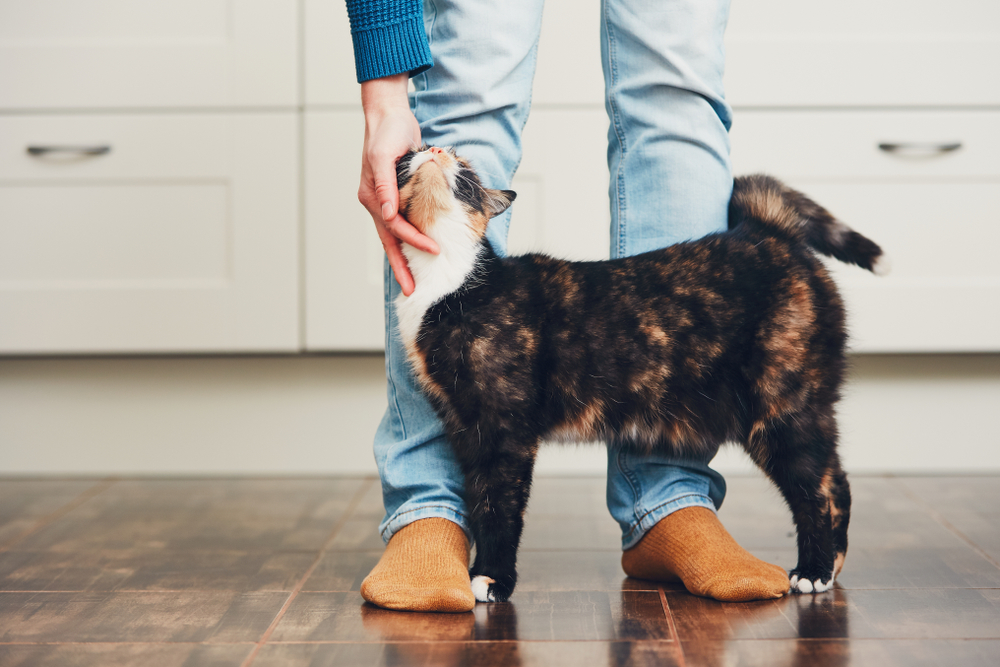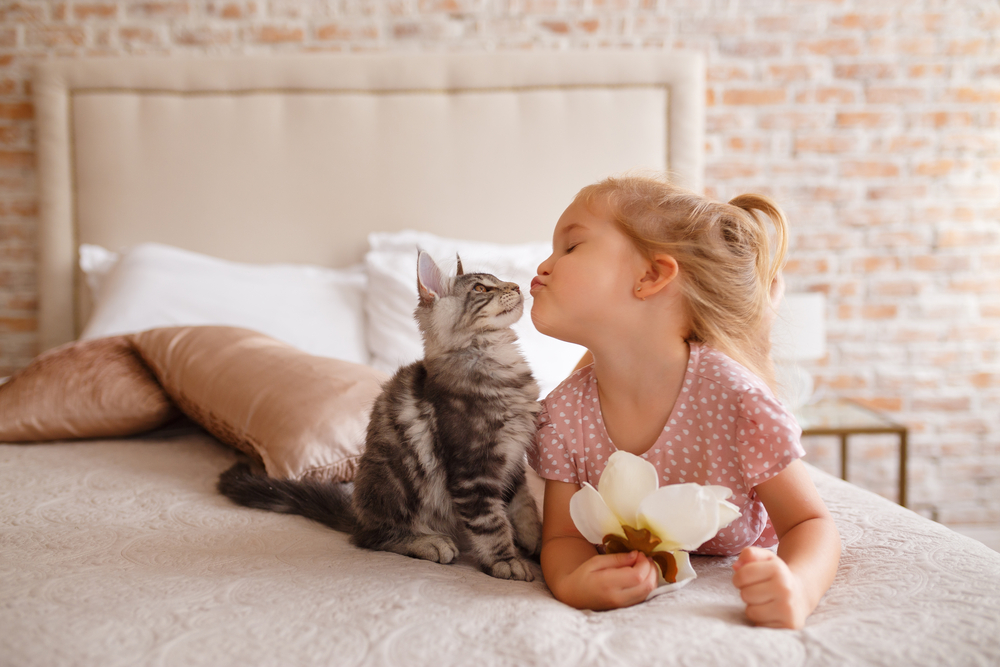If you own a female cat, you may already call her queen because of the way she rules the house. But if your female cat hasn’t been spayed, “queen” is actually the correct terminology to use.
You can expect more from your queen than just an attitude, too. Because she can still reproduce, her body will go through noticeable hormonal cycles called estrus. These cycles, which will happen at regular intervals throughout her life, prepare your cat’s body for reproduction.
What do you need to know about your queen’s estrus, including how often it will happen and what you can expect from a cat in heat? We’ll answer your burning questions.

When do cats start going into heat?
Cats can reproduce as early as 4 months of age. The average age of the first estrus (commonly known as a heat cycle) for a female cat is 6 months; however, it can begin as early as 4 months of age and, in some cases, happen as late as 12 months of age. It all depends upon your cat’s breed, her health, and the time of year.
Cats are seasonally polyestrous, which simply means they come into heat several times during the mating season. Your queen’s mating season will vary depending on where you live geographically. Cats living in environments with higher temperatures and more daylight hours and those that live indoors may experience heat cycles all year long. The breeding season for those living in colder climates with fewer daylight hours typically lasts from January until late fall.
A heat cycle can last anywhere from a few days to a few weeks and occur as often as every three to four weeks. Unlike humans, a queen does not experience menopause and will continue to cycle her entire life.
What can owners expect from cats in heat?
A queen’s estrus is very different from a human female’s menstrual cycle. Unlike humans, a cat doesn’t shed the lining of her uterus, so there is no vaginal bleeding. And while there may not be any visible physical changes, a queen in heat may exhibit some unusual behavioral changes such as:
- Increased affection. Your cat’s desire to mate will be so strong during her cycles that she will demand your affection, often by rubbing up against your leg.
- Howling. Known as “calling,” these loud cries are actually an attempt to attract a mate and not an indication that she is in any kind of (physical) pain.
- Spraying. In addition to feeling very amorous, your queen is also feeling very territorial. Spraying the walls and furniture with strong-smelling urine is her way of telling any males in the area that she is available.
- Loss of appetite. Her appetite usually returns when her cycle ends or she becomes pregnant.
- Excessive licking, especially her genital region.
- Attempts to escape the house. If your queen is a house cat, be aware that her desire to find a mate is so overwhelming that she might see an open door as an opportunity to go looking for one outside the safe confines of your home.
What to do when your cat is in heat
There are a variety of reasons cat owners decide not to spay their cats. Whether you’ve decided to breed your cat or have ethical or health-related concerns about spaying, living with a queen during the height of her cycle isn’t easy. Here are a few tips to keep both of you as comfortable as possible:
- Provide her with lots of love and affection. Spend time playing with her daily. If she allows it, pet or brush her lower back.
- Make her a nest with a heating pad and her favorite toys.
- Give her some catnip to help her calm down. Your veterinarian may have other ideas as well.
- Keep her litter box clean, especially if she marks her territory. This may encourage her to use the litter box instead.
Above all, be patient. Your queen is simply exhibiting instinctual behavior during her estrus. If her behaviors don’t return to normal when her cycle ends or you suspect she is sick, contact your veterinarian immediately.
If you aren’t planning to breed your cat, consider getting her spayed. This will eliminate the annoying behaviors she displays during heat and prevent any unwanted litters of kittens.
Whichever you decide, know that science says cat owners are happier and healthier than folks who don’t own pets. Besides being great companions, cats can lower stress and anxiety as well as combat loneliness. That means that even on their worst day, owning a cat makes life better.



